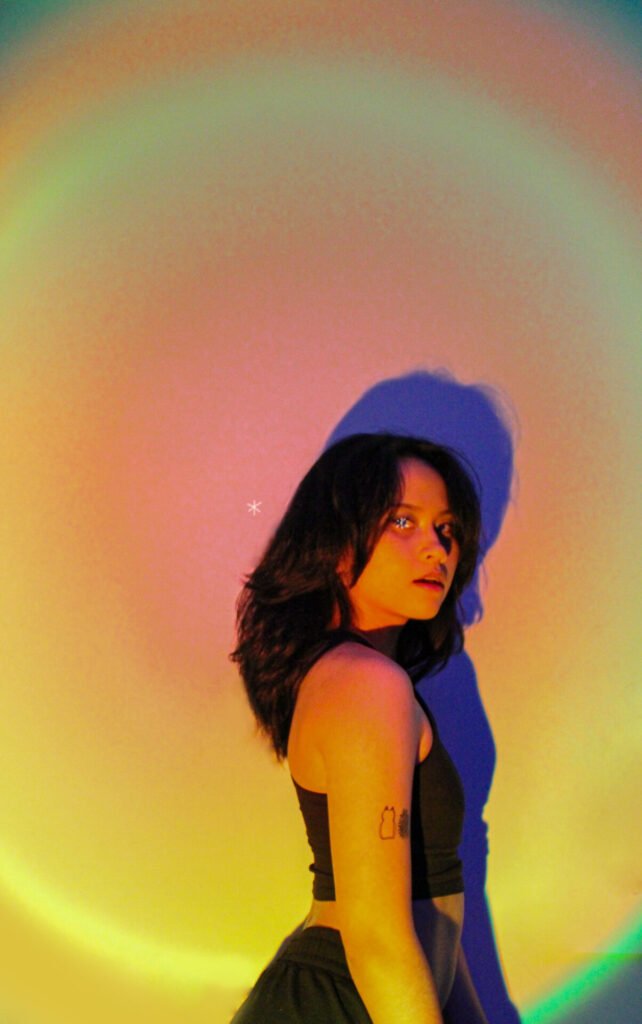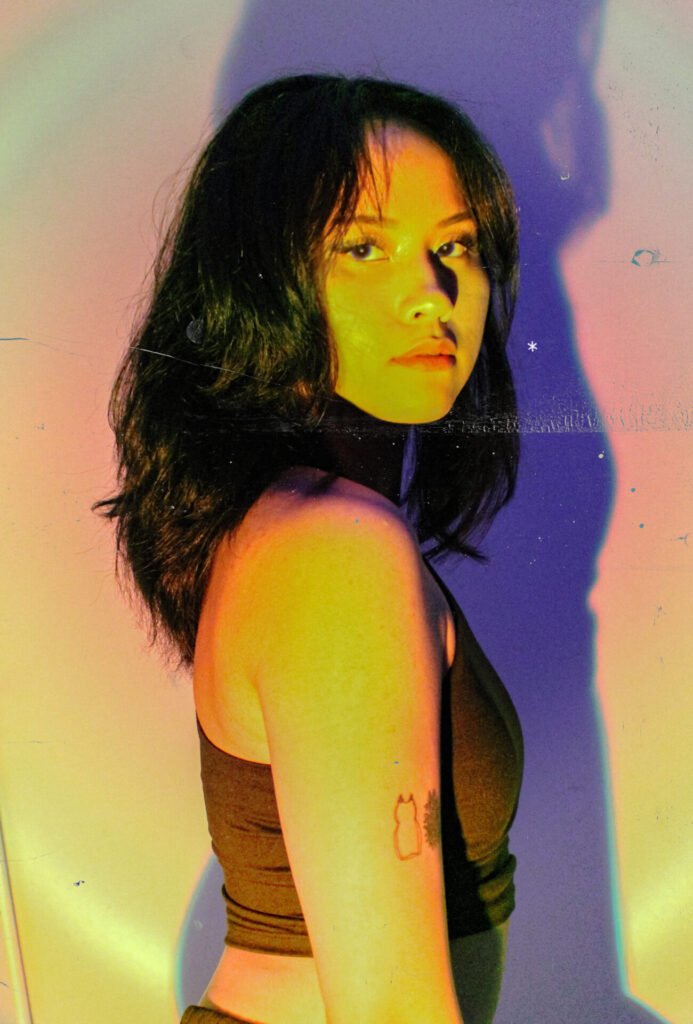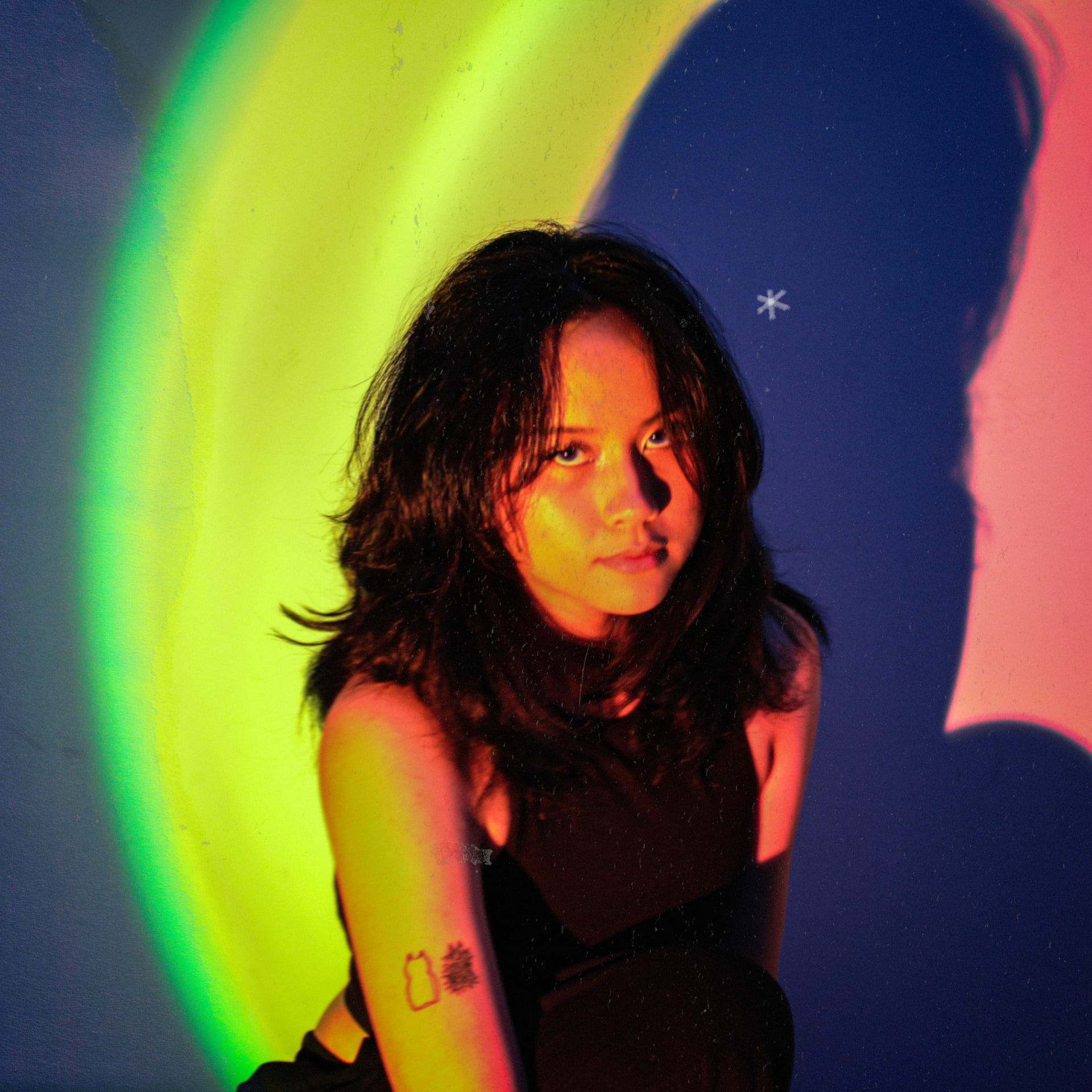Ruru is the solo-project of Filipino multi-disciplinary artist, Denice Quimbo. She was originally based in Manila, Philippines but currently resides in Ontario, Canada, where she continues to write her music whilst pursuing an education in Music Business Administration. Aspiring to become a fiction writer in her teenage years, Quimbo channels this through her music; creating a dialogue written in imagined perspectives. Her music is a conglomerate of jazz, funk, and alternative rnb. Check out the exclusive interview below:

1. Can you tell us a bit about where you come from and how you got started?
Ruru: I’m from the Philippines. The way it started traces way back. As a kid, I had a knack for story-telling. Comic books, novels, short stories, you name it. I’ve been a vivid dreamer for as long as I can remember. I would write describing every little detail possible so I could relive the dream in a diary. I guess this played a part later in my serious songwriting.
The story moving forward is nothing spectacular honestly. I covered songs as I discovered them online. When I started gaining the courage to shamelessly write and post things online, I started doing so on Tumblr, and eventually Soundcloud. As a homeschooled high schooler, I managed to build such a lively internal world.
In college, I distinguished my voice as a writer. I knew little to nothing about music production – but I continued to do what I knew best which was to write. Internet blogging and posting song blurbs on Soundcloud became my online diary. And so I continue to write in the same way to this day.
2. Did you have any formal training or are you self-taught?
Ruru: I took piano lessons throughout grade school with the intention of becoming a piano major (later on in life), but realized it wasn’t for me when I was met with highschool. Peers that surrounded me were all into covering music and big band jazz – so I started learning chords and reading sheet music to modern music. I taught myself some music theory and learned some from others. I played in a church band and they held lessons about the more complex things about music and so I took some from that.
With music production specifically, I was mentored by an old choir teacher of mine for a bit just to learn the basics of DAWs and XLR cables (stuff of that sort). Moving forward, I’ve always been the type of person to skip the instructions and learn by fiddling with knobs and parameters myself. So a lot of mistakes have been made in the process.
3. Who were your first and strongest musical influences and why the name ‘Ruru’?
Ruru: My first few musical influences are vastly different from the stuff I listen to now. I was the type of person who never had a specific strong like for any artist – I kinda just went with the flow of what people around me like. Obviously since I was immersed in classical music, I listened shallowly to the likes of Mozart, Chopin, Liszt, so on and so forth. Then I dipped into the world of Vocaloid and anime OST since my sister was so into that. In highschool, I listened, under the influence of peers to Taylor Swift, Owl City, and more.
I’d say a few artists that were instrumental to the pre-conception of “Ruru”are Mac Demarco, Chairlift, Rex Orange County, Cosmo Pyke, STRFKR, (Sandy) Alex G, and King Krule. Those guys, y’know. But when I was writing, I didn’t really know what I wanted the project to be. Right now, I’ve been exploring listening to some older records like Shuggie Otis’ INSPIRATION INFORMATION, and Frank Zappa’s Hot Rats, Yellow Shark, and Sleep Dirt. I’ve also really been super inspired by the soundtrack of Kirby’s Dreamland 3 which was composed by Jun Ishikawa. Though I still religiously (and with passion) listen to classical music on a weekly basis.
Ruru because I’m super lazy at thinking of names. It was supposed to be “Ru”(short for my second name Ruiza) which was my name in college – but people felt like using one syllable to refer to me was not enough and so they would naturally double it, hence the name Ruru.
4. What do you feel are the key elements in your music that should resonate with listeners, and how would you personally describe your sound?
Ruru: I don’t think I’m in a position to point to what should or what shouldn’t resonate with listeners when it comes to any music at all. Every person I think has a bias in regards to what their ears listen for. There are so many layers to appreciate too, in music; and whatever part makes people feel connected is what makes that experience unique and special to them.
Describing my sound: rumpled, collage-y, tender. It’s the depth of what I wanted to say plainly, but couldn’t do simply – so I beat around the bush with syncopation, melody, and lyricism. To put it plainly, it could also just really be under the umbrella of Alternative/Indie for a lack of better imagination.

Ruru: Listening and taking bits and pieces from artists. Some would call it stealing, I imagine it’s almost like learning from them. Or making a hybrid out of your faves. I’m not good at discovering music, but when I find something I like, I tend to listen to it over and over again for weeks, even months. Just printing it in my mind. I don’t want to be an exact copy, I want to inject what the music means to me and watch it play out through whatever these hands make, or what this mind hears.
Early in my writing, it was purely about learning to become honest and vulnerable. I took from certain artists, even outside of music, heavily inspired by fiction writers. Thinking outside the box of general song structures enlightened me to write fearlessly.
6. What’s your view on the role and function of music as political, cultural, spiritual, and/or social vehicles – and do you try and affront any of these themes in your work, or are you purely interested in music as an expression of technical artistry, personal narrative and entertainment?
Ruru: Ultimately the latter. Maybe the music could loosely speak of these times, or it could be completely out of vanity and mean nothing at all.
7. Do you feel that your music is giving you back just as much fulfillment as the amount of work you are putting into it, or are you expecting something more, or different in the future?
Ruru: Yes. What the music or making music means to me has changed over time. I wrestled, almost slipped, carrying the medium with me as a hobby over to being an actual career. The fulfillment is there, sometimes not; but always revealing itself over time. I believe any work put into something is no waste of time. I also try not to take music-making too seriously.
8. Could you describe your creative processes? How do you usually start, and go about shaping ideas into a completed song? Do you usually start with a tune, a beat, or a narrative in your head? And do you collaborate with others in this process?
Ruru: A song could be a person on the train, someone I used to know, an idea, a dream, a repressed emotion, something someone said, or something I imagined someone said. The possibilities for me are endless. The most difficult bridge to cross is getting over myself to start writing without any prejudice against myself. So when I write, I trick my brain. I write not to write.
The tunes come in the same way. It’s pure insanity to me to think that I could start anywhere, in any way, at any given time in the matter of a measure. So when I start with the sounds, I start with limits. I put myself in the shoes of a fictional character. If they had a theme song, or some kind of background music playing in this scene, what would that sound like? Something like that. Obviously it’s not as well thought of as that – it could happen as arbitrarily as a fart. But even I can’t recall one instance in the conception of a song that was similar to the last one.
When I collaborate with people, the chaos would already be all sorted out. By the time I show it to others, it’s fully arranged, but leaving space for someone who could probably play that part I imagined better than I did. Most of the collaborations done on Glorious Miscellanea were all done online or virtually.
9. What has been the most difficult thing you’ve had to endure in your life or music career so far?
Ruru: Probably uncertainty.
10. On the contrary, what would you consider a successful, proud or significant point in your life or music career so far?
Ruru: I’m very proud that I was able to finish my first album ever. It’s a piece of work that I can 200% say that I’m proud of.
KEEP IN TOUCH:
INSTAGRAM | FACEBOOK | TWITTER | SPOTIFY | BANDCAMP

